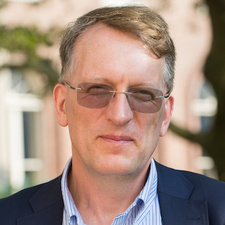What Are the Rights and Responsibilities of Internet Service Providers and Content Providers?

Abstract: Since medieval times, we have had private entities that are "affected by a public interest," i.e., where their services are seen as sufficiently important to society that their transactions are not merely individual contractual arrangements left to the parties involved. Early on, these services included ferries, then railroads, public buses, grain elevators and airlines - and, since the middle of the 20th century, telecommunications networks. These entities are called common carriers, and hold themselves out to provide service to the public on non-discriminatory terms. There are two related questions: Should providers of "transport" services be liable for what they carry? Should they have the ability to charge different prices or refuse carriage to different customers or different types of content? Both questions are central to the network neutrality debate on whether Broadband Internet Access Services (BIAS) providers should be treated, effectively, as common carriers and whether social media networks that have become the marketplaces of ideas should be able to "censor" content and what, if any, liability they should incur for carrying unwanted, harmful or illegal content - or refusing to carry content. The latter is generally discussed in the context of the so-called Section 230 provisions of the Communications Decency Act. This talk will provide a perspective on these long-running questions, and the difficult choices and trade-offs they entail.
Bio: Henning Schulzrinne is a Professor of Computer Science at Columbia University. He received his undergraduate education at the Technical University of Darmstadt, Germany, his MSEE at the University of Cincinnati, and his PhD from the University of Massachusetts, Amherst.
Schulzrinne and his team have developed the Session Initiation Protocol (SIP), the Real-Time Transport Protocol (RTP), and other multimedia signaling and support protocols used in the 4G/5G, CableLabs, NENA NG911 (for emergency calls), Internet RFCs and other system standards to support VoIP and multimedia streaming applications. Most recently, he has been working on automating the diagnostics of Internet network faults, protecting the electric grid against cyber- attacks, and scaling up the Internet of Things. He has received a number of wards for his research and is a Fellow of the IEEE and ACM.
From 2010 through 2019, he has been advising the US Federal Communications Commission (FCC), including in his former role as FCC Chief Technologist, on public safety, enabling communications for people with disabilities, the Open Internet, cybersecurity, network measurements, and preventing robocalling. From 2019 to 2020, he served as a Technology Fellow in the office of Senator Ron Wyden, advancing efforts on protecting data against illegal searches, improving broadband availability for rural and low-income households and preventing identity theft.
This seminar is part of the Spring 2022 INFO 203 course (A Networked World). The talk will be live-and-in-person and also available via Zoom
https://umass-amherst.zoom.us/j/5651060656?pwd=Tjd0bDkwTXpMdS9uWUcxUDVORjJkUT09